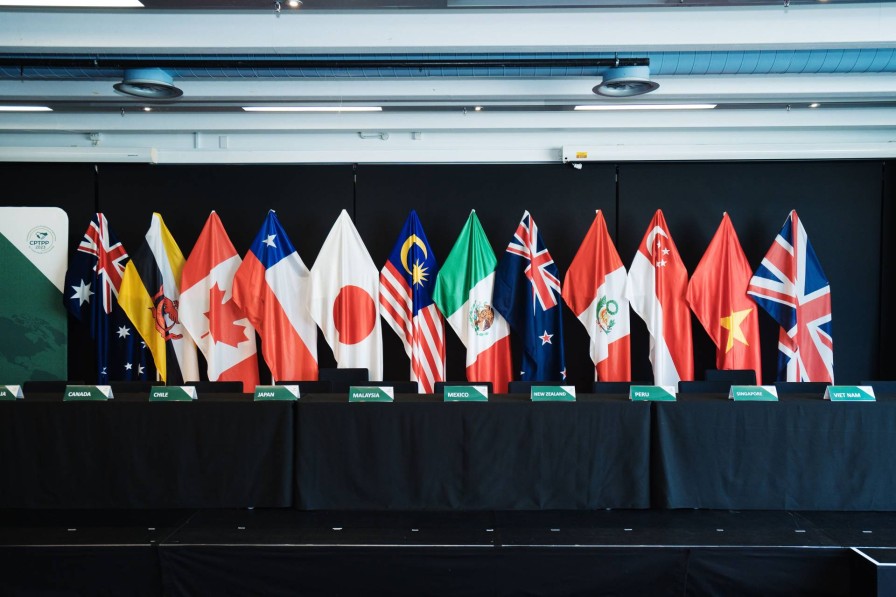New Zealand needs to push back on protectionism
ANALYSIS: Serious effort should be put into bolstering partnerships with other key trading nations.
ANALYSIS: Serious effort should be put into bolstering partnerships with other key trading nations.
Nearly a month on from US President Donald Trump’s so-called ‘Liberation Day’, the reality of the new US Administration’s tariff turmoil and global trade upheaval is starting to sink in around the world. As small and medium-sized countries navigate their way through these uncertain times, they should focus on preserving the rules-based trading system that has served them so well by deepening, and broadening, their trading relationships and regional integration.
Since taking office, Trump has introduced several measures aimed at shaking up the global trading system, which he alleges has not served the US well.
He has traded barbs with allies and foes alike, imposing new tariffs on the whole world, and pushing for America to be a “manufacturing nation once again”. As the largest economy in the world, such moves are being felt widely, and spurring many nations into action as they rush to join the queue to the White House with promises of tariff concessions, new investments in the US, and increased purchases of US products.
According to the US Administration, more than 100 countries are beating down its door seeking a trade deal with the self-proclaimed greatest dealmaker, President Trump.
How quickly those deals can be done, and the quality of those deals, is, however, up for debate, especially given Trump’s competing objectives of eliminating the US trade deficit, boosting government revenue, addressing foreign non-tariff barriers, and bringing manufacturing home.

While New Zealand has limited purchasing power to wave in front of Trump, already has a low-tariff regime in place, and limited non-tariff barriers to remove, it should nevertheless work with the US to address Trump’s concerns as best it can.
At the same time, serious effort should be put into bolstering partnerships with other key trading nations and freeing up that trade even further.
Small and medium-sized countries have benefited significantly from a rules-based trading system that doesn’t reward the most powerful with all the spoils, and they need to serve as its greatest champion in these turbulent times. In recent years, through a proliferation of bilateral and regional free trade agreements, numerous trade barriers have been reduced, the ease of doing business across borders has increased, and trade in both goods and services has continued to grow – all contributing to higher GDP growth for many economies in Asia.
For New Zealand, one in four jobs is now linked to producing goods or services for export.
The Comprehensive and Progressive Agreement for Trans-Pacific Partnership (CPTPP) is a success story for economic integration and New Zealand should now be looking to prioritise its expansion to include the European Union. With the EU as a member, CPTPP would be a formidable bloc of more than one billion people, covering 31% of global GDP. It would also increase valuable inter-regional cooperation, with major players in Europe, Asia, and North and South America all coming together, integrating their economies and supply chains and, importantly, operating with a common set of enforceable rules.
Of course, bringing into the CPTPP the behemoth that is the EU will not be easy, and it certainly will not happen overnight. But if membership is a bridge too far at this point (or perhaps one that takes too long), CPTPP members should be willing to explore whether there are other options – some sort of ‘CPTPP-lite’ version that creates a pathway towards full membership.
For example, this could be where some priority sectors or issues are covered first, there are specific exceptions granted, or there is a phased implementation period. Such expansion would serve as an important signal of the value of trade based on modern, ‘gold standard’ rules that provide certainty for exporters, investors, and governments alike.
Such a negotiation would also provide a valuable opportunity – and the kick-start needed – to substantively upgrade the CPTPP, whose text now dates back from pre-Trump 1.0. In particular, updates to take account of technology developments that further support digital trade, that bolster trade and environment provisions, and enhance cooperation on supply chain resilience would be beneficial.

Flags of the CPTPPT nations. Photo: Smoke Photography.
While proposing the EU join CPTPP might have been an outlier idea even just a few months ago, at this point in time, all cards are on the table. Right now, everyone is in the same boat, with diversification being the name of the game, and that includes looking at harmonising, merging, or expanding existing trade-liberalising arrangements.
As governments around the world are scrambling to re-configure their trade policy to take account of Trump’s policies, that is forcing them to look beyond their regular horizon to find stable, predictable, and reliable trading partners. Businesses are doing the same. New Zealand should position itself to be clearly in their sights.
Furthermore, it is more important than ever that countries assist their businesses to take advantage of the trade deals that they have in place. The provisions in free trade agreements have been hard won by negotiators, usually over years of negotiating rounds – but if businesses don’t avail themselves of those provisions, their value is undermined.
Whether this means providing more information to businesses, organising more trade missions for ministers and the Prime Minister, or helping more businesses in-market – these are all part of the package that leads to greater economic prosperity through export growth.
While Trump’s policies are challenging the status quo and causing anxiety around the world, this is an opportune time for New Zealand to gather with its like-minded partners to explore how they can together counterbalance the protectionist approach through strengthening plurilateral and regional trading arrangements to provide even greater market access and expand fair and rules-based trade.
Jane Mellsop is the director for trade, investment and economic security at the Asia Society Policy Institute in Washington, DC, and was previously the senior trade adviser to the then-minister for trade and export growth, Damien O’Connor.
Sign up to get the latest stories and insights delivered to your inbox – free, every day.